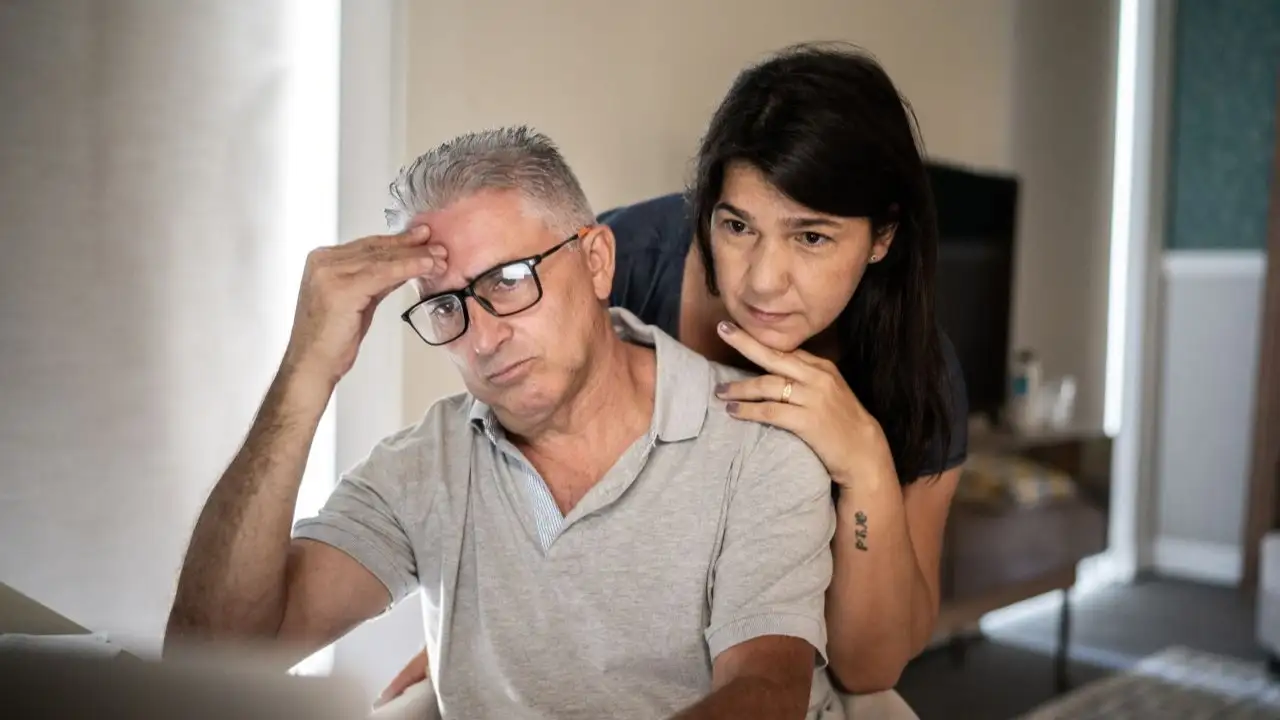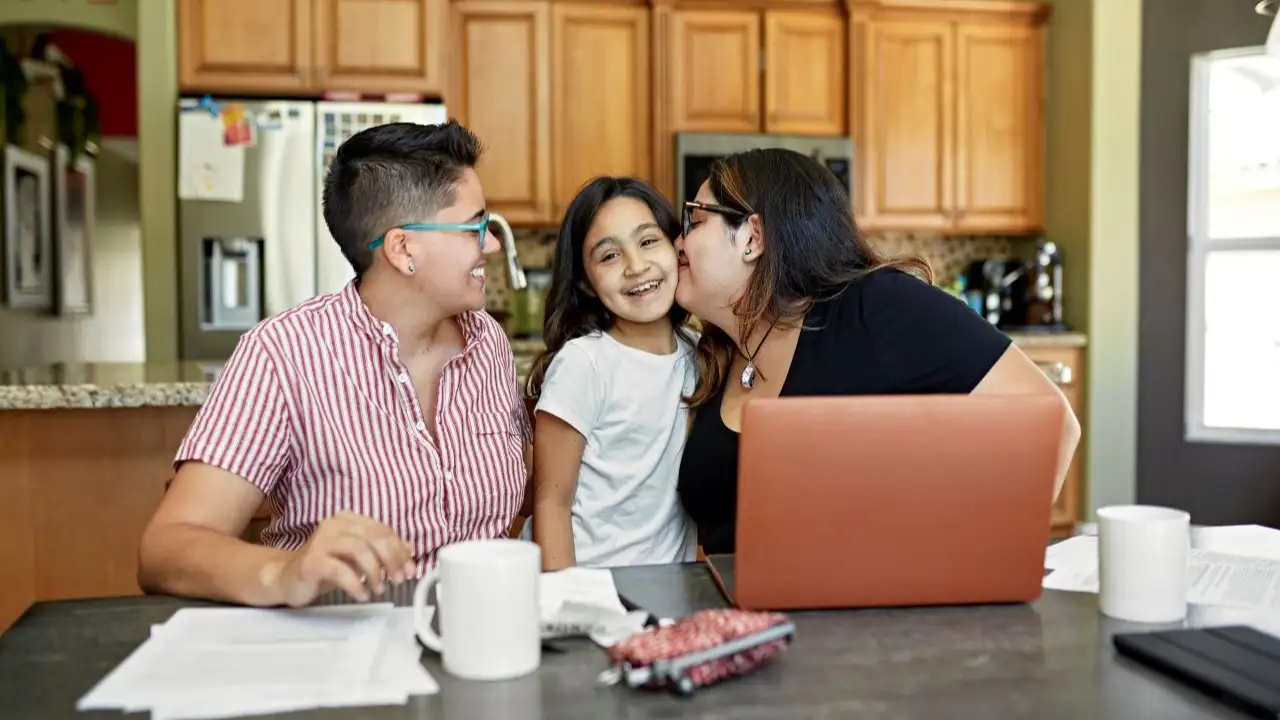
Money Tips & Education
What's the best way to avoid running out of money too quickly?
Nov 28, 2024
Written by
Reviewed by
Key takeaways:
Many people run out of money because they live paycheck to paycheck, so if you're in this situation, you're not alone.
A budget could help you understand where your money goes each month and what you might be able to cut back on.
If debt is a roadblock to your financial progress, there are debt experts who could help you find a solution.
It's almost the end of the month, and you log in to your bank account to check your balance. And maybe it's no surprise to see there's not a lot of cash to work with.
If that sounds familiar you're not alone. Nearly 80% of Americans live paycheck to paycheck—even people who pull in $100,000 or more each year. It’s frustrating when you always seem to run out of money too quickly.
If you're ready to make a change, pat yourself on the back. Let's look at how to avoid cash flow shortages and maybe save a little money while you're at it.
1. Get to know the financial you
Your spending habits can offer a big clue about why you run out of money. If you don't track expenses yet, it's time to start.
The simplest way to keep tabs on where your money goes is to use a free budget app like Achieve MoLO.
The Achieve MoLO app lets you connect your bank accounts and credit cards in one place. You can see what you've spent and which expenses are on the horizon.
When you track spending this way, it becomes easier to see which expenses eat up the most money. And you can challenge yourself to cut down on nonessentials so you don't run out of money as quickly.
2. Choose a budgeting style
If you run out of money and don't know why, a budget could help.
A budget is your plan to manage income and expenses each month. There's more than one way to create a budget. Some of the most popular budget methods include:
50/30/20 budget rule. The 50/30/20 budget splits your income by percentages: 50% goes to needs, 30% goes to wants, and 20% goes to savings and debt repayment.
Zero-based budget. A zero-based budget gives every dollar of your income a job. The goal is to have $0 left after you pay bills, cover expenses, and save.
Pay yourself first budget. The pay-yourself-first budget encourages you to set aside money for savings and pay down debt before you spend money on anything else. You might try this option if you struggle to save.
Envelope budgeting. With this budget method, you set up envelopes for groceries, gas, and other expenses and fill them with cash. You can only spend the cash you have on hand until the next budget period starts.
What's the easiest way to start budgeting? The answer is different for everyone.
If you'd like to be able to track expenses from anywhere, then a free budget app could make sense. All you have to do is connect your accounts to track bills, expenses, and debt payments.
3. Prioritize needs over wants
Some people get into trouble with spending because they confuse needs vs. wants.
A need is something you have to spend money on to live. For example, rent or mortgage payments, utility bills, groceries, and gas could all go into the needs category.
A want is anything you don't need. New clothes, streaming subscriptions, takeout, or a weekend trip are all examples of wants.
If you're tired of running out of money all the time, you might need to reevaluate your financial priorities to focus on what's most important.
Go through your expenses and ask yourself, Is this essential? If the answer is no, then consider whether you can lower that expense or cut it out altogether. Remember—it doesn’t have to be forever.
While it might feel a little painful at first, this is one of the best ways to save money on bills.
4. Look for spending you can trim
Money can run out faster when you live above your means. To live above your means is to spend more than you can afford.
That could happen if you give in to impulse buying or don't track expenses. The choice is either to cut back on spending or continue living paycheck-to-paycheck.
But what if you're on top of your budget and still seem to run out of money too quickly?
The truth is, your paychecks can only go so far if your income stays the same while the cost of living goes up. Treating yourself to something as small as a cup of coffee on the way to work (or a beer on the way home) could feel like a betrayal of your budget, even though it's not your fault that everything is so expensive.
If you've already cut your budget to the bare bones, think about what else you can do to gain some traction. For example, could you:
Downsize to one car if you're a two-vehicle household
Learn some DIY skills so you don't need to call a repair person every time something breaks
Negotiate a discount on your rent, or refinance your mortgage if you own your home
Use cash-back apps to save money on the things that you do have to buy
The more ideas you have to save, the more wiggle room you could add to an already tight budget.
5. Build a small emergency fund
An emergency fund helps you avoid financial panic when life hands you lemons. It's money that you set aside only for use in a true emergency.
Look at your budget. Is there any amount you could save to start building a financial cushion?
Even $5 or $10 every payday still counts, and it will add up over time. You could make saving money for emergencies easier with an automatic transfer every payday.
How much should you save for emergencies?
Some financial experts might say you need three to six months' worth of expenses in an emergency fund. Others may tell you that it makes sense to save a set dollar amount for every person in your household.
The bottom line is your emergency fund number should be an amount that lets you sleep at night.
Figure out how much you want to save. Then, set a smaller goal. For example, $500 is a good place to start. But if you can save $25, start there—what matters is that you start saving.
Set up automatic transfers to savings every time you get paid. Once you hit the $500 mark, bump it up to $1,000 and repeat the process. Each time you hit a new threshold, increase your goal just a little bit further until your rainy day fund is where you want it to be.
6. Consider side income to boost your budget
If you're doing all you can to cut down spending, think about what you can do to bring in some extra income. Extra cash flow could boost your budget so you're not always worried about whether you'll have enough to pay the bills.
Decide how you want to try and make more money. For example, do you want to get a part-time job? Could you take on more hours at work? Or would you like to try a side hustle or two?
Here are some of the easiest ways to generate more income in your spare time.
Take surveys. Survey sites could pay you cash (or gift cards) when you answer questions. You won't get rich, but it's an easy way to make money from home with your phone or laptop.
Test websites or join a focus group. If you're interested in making money online, you could get paid to test websites or participate in focus groups. You get paid to share your feedback, and you don't need any special skills to get started.
Sell things. Look around your house. See anything you no longer need? If so, you could sell it for quick cash on Facebook Marketplace or Craigslist.
Do yard work. Can you cut grass, trim hedges, or rake leaves? If so, you might offer lawn care services locally to make money.
Sell your services or time. Gig work could bring in extra money, and it's usually flexible. For example, you could deliver food, get paid to shop for groceries, or do odd jobs to make some quick cash.
If you need more ideas, challenge yourself to brainstorm at least 10 ways you could make extra income right now.
7. Research debt solutions if you're spinning your wheels
Debt could block your path to financial freedom and if you feel stuck, it helps to know that you have options.
There are plenty of debt solutions—you just have to find the right one for you.
For example, there are personal loans you could use to consolidate debt so you have fewer monthly payments to make. Debt resolution, meanwhile, could help you get rid of debt for less than what you owe.
If you're not sure what you need, our debt quiz could help. This brief, two-minute quiz could steer you toward the right Debt Care™ plan for your needs.
How can I get help if I'm drowning in debt?
If you're completely overwhelmed by debt, financial help is there for you. You can talk to a debt expert about your budget and debt situation to figure out what solutions might work best for your needs.
Author Information
Written by
Rebecca is a senior contributing writer and debt expert. She's a Certified Educator in Personal Finance and a banking expert for Forbes Advisor. In addition to writing for online publications, Rebecca owns a personal finance website dedicated to teaching women how to take control of their money.
Reviewed by
Jill is a personal finance editor at Achieve. For more than 10 years, she has been writing and editing helpful content on everything that touches a person’s finances, from Medicare to retirement plan rollovers to creating a spending budget.
Frequently asked questions
How can I save money when there isn't any money to save?
If your budget is tight, there are two ways to save money: Cut expenses and increase income. It may be easier to make more money if you've already cut expenses down to nothing. The fastest way to make money to save is to sell things you don't need for cash.
How do I train myself to stop spending money?
One way to break the overspending habit is to impose a time rule on new purchases. Say there's something you want to buy. You'd make yourself wait 48 hours, one week, or 30 days, then revisit the purchase. You might find that once you have time to think
What's a no-spend month?
A no-spend month is a month-long challenge to save money. You only spend on essential needs and skip all the wants that can clutter up your budget. And you save the money that you would have ordinarily spent, which is a great way to start or add to your emergency fund.
Related Articles
Some credit checks affect your score, but others don’t, even from the same lender. We’ll explain when and why credit checks can affect your credit.
Jane Meggitt
Author
Myth-busting: you don’t need to carry a credit card balance to have good credit! Learn how credit utilization affects credit scores.
Rebecca Lake
Author
Ready to take control of your money? Learn what a budget can do for you and how to make one.
Rebecca Lake
Author
Some credit checks affect your score, but others don’t, even from the same lender. We’ll explain when and why credit checks can affect your credit.
Jane Meggitt
Author
Myth-busting: you don’t need to carry a credit card balance to have good credit! Learn how credit utilization affects credit scores.
Rebecca Lake
Author
Ready to take control of your money? Learn what a budget can do for you and how to make one.
Rebecca Lake
Author


